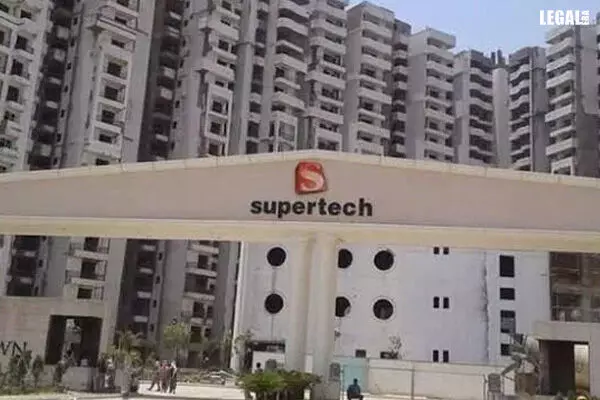- Home
- News
- Articles+
- Aerospace
- AI
- Agriculture
- Alternate Dispute Resolution
- Arbitration & Mediation
- Banking and Finance
- Bankruptcy
- Book Review
- Bribery & Corruption
- Commercial Litigation
- Competition Law
- Conference Reports
- Consumer Products
- Contract
- Corporate Governance
- Corporate Law
- Covid-19
- Cryptocurrency
- Cybersecurity
- Data Protection
- Defence
- Digital Economy
- E-commerce
- Employment Law
- Energy and Natural Resources
- Entertainment and Sports Law
- Environmental Law
- ESG
- FDI
- Food and Beverage
- Gaming
- Health Care
- IBC Diaries
- In Focus
- Inclusion & Diversity
- Insurance Law
- Intellectual Property
- International Law
- IP & Tech Era
- Know the Law
- Labour Laws
- Law & Policy and Regulation
- Litigation
- Litigation Funding
- Manufacturing
- Mergers & Acquisitions
- NFTs
- Privacy
- Private Equity
- Project Finance
- Real Estate
- Risk and Compliance
- Student Corner
- Take On Board
- Tax
- Technology Media and Telecom
- Tributes
- Viewpoint
- Zoom In
- Law Firms
- In-House
- Rankings
- E-Magazine
- Legal Era TV
- Events
- News
- Articles
- Aerospace
- AI
- Agriculture
- Alternate Dispute Resolution
- Arbitration & Mediation
- Banking and Finance
- Bankruptcy
- Book Review
- Bribery & Corruption
- Commercial Litigation
- Competition Law
- Conference Reports
- Consumer Products
- Contract
- Corporate Governance
- Corporate Law
- Covid-19
- Cryptocurrency
- Cybersecurity
- Data Protection
- Defence
- Digital Economy
- E-commerce
- Employment Law
- Energy and Natural Resources
- Entertainment and Sports Law
- Environmental Law
- ESG
- FDI
- Food and Beverage
- Gaming
- Health Care
- IBC Diaries
- In Focus
- Inclusion & Diversity
- Insurance Law
- Intellectual Property
- International Law
- IP & Tech Era
- Know the Law
- Labour Laws
- Law & Policy and Regulation
- Litigation
- Litigation Funding
- Manufacturing
- Mergers & Acquisitions
- NFTs
- Privacy
- Private Equity
- Project Finance
- Real Estate
- Risk and Compliance
- Student Corner
- Take On Board
- Tax
- Technology Media and Telecom
- Tributes
- Viewpoint
- Zoom In
- Law Firms
- In-House
- Rankings
- E-Magazine
- Legal Era TV
- Events
NCLT Directs CIRP Against Supertech Township For Failing To Pay Punjab & Sind Bank

NCLT Directs CIRP Against Supertech Township For Failing To Pay Punjab & Sind Bank
It is the third group firm of Ram Kishor Arora-led realty major to go through this course
The New Delhi bench of the National Company Law Tribunal has ordered the initiation of the Corporate Insolvency Resolution Process (CIRP) against Supertech Township Projects on a plea filed by Punjab & Sind Bank for a Rs.216.92 crores default.
In March 2022, the tribunal had ordered insolvency proceedings against Supertech Ltd and, in June, Supertech Realtors, which is developing residential apartments, offices, retail and luxury hotels at its ‘Supernova’ projects, suffered the same fate.
Recently, the NCLT admitted Punjab & Sind Bank’s plea against Supertech Township and appointed Umesh Singhal as the Insolvency Resolution Professional (IRP).
Supertech Township is developing a group housing project Golf Country at Yamuna Expressway, Greater Noida, Uttar Pradesh.
The project cost was Rs.1,500 crore to be financed by a term loan of Rs.340 crore. This included the promoter's contribution of Rs.453.04 crore and Rs.706.93 crore as an advance booking amount from a customer.
In March 2013, the bank sanctioned a term loan of Rs.40 crores for part financing of the project. The real estate developer had agreed to repay the loans as per the lenders’ sanction letters.
However, it defaulted on payments and breached the credit limit. As a result, a huge outstanding was due to Punjab & Sind Bank.
Thus, in June 2018, the corporate debtor’s account was classified as a Non-Performing Asset (NPA) for continuous default.
The realty firm opposed this and contended that the plea was filed without proper authority and was time-barred, as the bank declared it as NPA in 2018. In December 2022, it had proposed a settlement offer of paying 75 percent towards all the dues, which was rejected by the financial creditor. The present plea was filed after five years.
However, rejecting Supertech’s contentions, the tribunal stated that though the NPA was declared in 2018, the debtor acknowledged it in the balance sheet of Financial Years 2018-19, 2019-20 and 2020-21.
It also issued an OTS proposal in January 2022, which the lender did not accept. After negotiations, a combined OTS was submitted, which also the lender rejected in a consortium meeting.
The NCLT stated, “Later, the corporate debtor issued a one-time settlement proposal on 06 December 2022, acknowledging its debt. The OTS was subsequently rejected by the financial creditors.”
The tribunal added, “If there is an acknowledgment of debt in writing within a limitation period, a fresh period as per Section 18 of the Limitation Act commences from the date of the acknowledgment of the debt.”
The NCLT stated, "Despite declaring the account as NPA in 2018, six years elapsed without any proactive efforts from the corporate debtor to complete the project."
The bench ruled that the debt and the default were well established. It added that the bank was entitled to move the application against the corporate debtor due to the outstanding financial debt.


